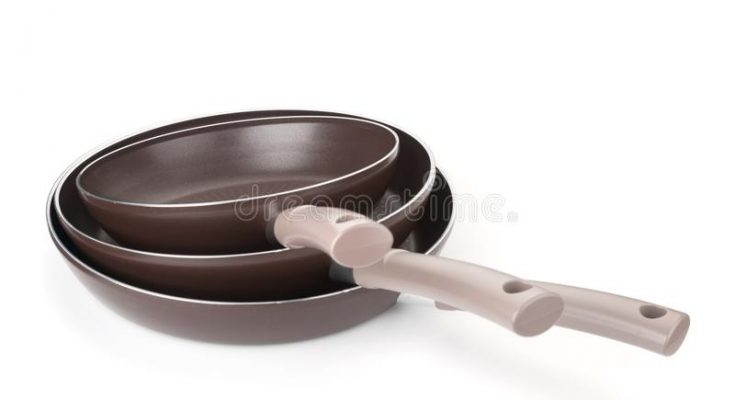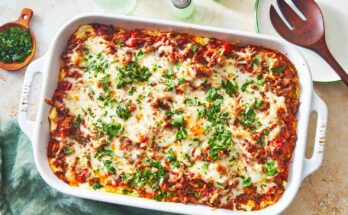Forged aluminum frying pans are made from solid pieces of aluminum. They have a non-stick coating on the interior and exterior of the pan. The heavy-gauge steel handle is riveted into the body, which makes it sturdier and less prone to bending or warping. These pans are similar in design to cast iron and have been around for quite some time, but they were not always readily available or affordable for everyday use, not until recently.
Forged Aluminum Cookware: Is It Safe?
Forged aluminum cookware is safe, providing you take care of it properly. You have to use anodized cookware with a non-stick surface for the best results. The exterior should be washed with just soap and water, without harsh abrasives or metal scouring pads that can scratch the surface of the pan.
Cooks should avoid using hard scrubbers or metal scouring pads on these pans because this could lead to corrosion. Once the food is cooked, these pans will stay hot longer than other types if they are used correctly (which means using heat proof handles when moving them). Cleaning your forged aluminum pots after every use makes it extra safe because you won’t create any bacteria buildup over time.
Where Can You Use Forged Aluminum Pans?
You can use a forged aluminum pan on the stovetop, at a campfire, in your oven, and to grill food. The heavy-duty construction makes these pans versatile enough to handle all types of cooking tasks. They won’t warp or break easily because they are made from high-quality materials that have been tested for strength and durability.
Tips When Shopping For Forged Aluminum Frying Cookware
Price – This is a good indicator of quality with these pans. If you find them for less than $10 each, there’s a good chance the manufacturer was cutting corners and used lower-quality materials to create the product. These types of pans are generally not worth buying because they won’t last long and can fail when you need them most.
Warranty – When you purchase cookware, it is important to look at the warranty so you know what type of damage is covered and for how long.
Coating – Non-stick coatings help these pans release food easily. The surface is slick so you can simply wipe away cooked food after it’s ready to be served or transferred to a storage container. Most forged aluminum frying pans have some type of non-stick coating that will resist scratching, chipping, and peeling over time.
Handle – These pans typically have a handle that is thick and designed to stay cool during use. Most of the designs offer an ergonomic grip so it is easier to lift when filled with heavy food or hot liquids. The end of the handle usually has a hole for hanging when not in use.
Size – The size of the pan will determine how much food you can cook at one time. A larger cooking surface allows you to make more servings for friends and family members, while a smaller size might be better for making personal dishes or side dishes.
What Is the Difference Between a Cast Iron and a Forged Aluminum Pan?
Cast iron cookware is heavy, bulky, and may not be as versatile as forged aluminum frying pans. These types of pans have a smooth surface that doesn’t work well with non-stick cooking spray. In addition, they are not always dishwasher safe, so you have to clean them by hand. Cast iron pans are constructed from heavy materials that may warp over time, which makes the cooking surface uneven.
Forged aluminum cookware, on the other hand, is more lightweight, durable, and heat-resistant than cast iron. They also do not warp easily because they are made using quality materials designed for superior performance. The anodized exterior on these pans is coated with a non-stick surface that is easy to clean and maintain. Handles are designed for comfort and balance.
What Is the Best Type of Cookware for Me?
Forged aluminum frying pans offer the best value for your money because they offer superior performance. These types of cookware stand up to years of regular use and can be used for all types of foods you wish to cook. They are easy to clean and maintain their non-stick surfaces for better food release. Most pans come with a limited warranty, so they are covered if there is any damage that occurs while cooking or cleaning your pan.
If you prefer cast iron, they are more affordable than the forged aluminum frying pans and can be used for a wider variety of cooking tasks. However, you will have to be careful when cooking food and cleaning the surface so they do not begin to rust or warp over time.



